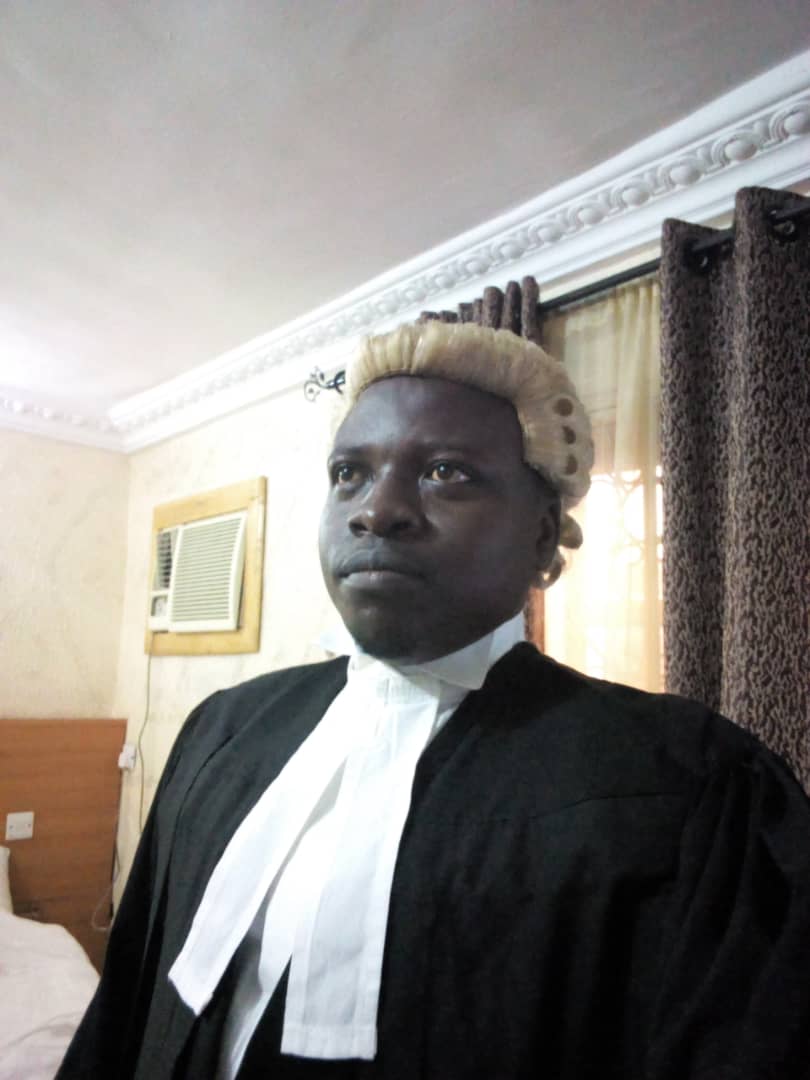society
Legal Status of Nullified Order of Arrest

Legal Status of Nullified Order of Arrest
The vacation of warrants of arrest, search and commitment to prison on remand against Dr. Akintoye Akindele, the Managing Director/Chief Executive Officer of Duport Midstream Company Limited in suit no. CMC/MG/CR/17S/2023 by a Chief Magistrate Court in Nasarawa State sitting at Mararara Gurku is of topical interest.
The Inspector General of Police was the complainant in the suit. By vacating its own order, the court has provided further proof as to the robustness of the judicial system to resist attempts at pressing it into service as a tool for impunity.
There are instances where the police may arrest a person in circumstances where the arrest ought not have been made in the first instance. Such arrests may be nullified by the same court or by courts of equal jurisdiction.
The question which arises is the legal status of such nullified orders of arrest. The grounds for nullification may include defects in the jurisdiction of the court, non- disclosure and/or suppression of crucial information by the police, et cetera.
This publication seeks to lay to rest the status of the unlawful arrest by the police of such a person.
Introduction
This opinion addresses a pivotal issue:
Can a Magistrate Court in Nasarawa State, for example, lawfully issue warrants and committal orders on the bases of untrue/concealed information from the police concerning alleged offenses committed beyond the court’s jurisdiction?
And, where such orders of arrest are made but subsequently quashed, what is the legal status of the quashed order of arrest?
Jurisdictional authority of Magistrate Courts in Nasarawa State.
The bedrock of the authority of Magistrate Courts in Nasarawa State to issue arrest and search warrants is rooted in the Administration of Criminal Justice Law (ACJL) of Nasarawa State.
This legal framework, meticulously detailed in Sections 35, 36, 143, and 144 of the ACJL Nasarawa State, provides a precise avenue through which these courts can empower law enforcement agencies to apprehend suspects and secure crucial evidence.
However, it is crucial to acknowledge the limitations stemming from the territorial jurisdiction of these courts.
For instance, the jurisdictional scope of the Chief Magistrate’s Court in Maraba-Gurku, Nasarawa State, is explicitly defined within the official gazette.
Legal Analysis of the Issue
The key issue for determination is as follows: Do Magistrate Courts possess the capability to extend their arm of authority to issue warrants for offences that transpire beyond the territorial confines of their jurisdiction? This question emanates from the bedrock of Nigerian legal principle on the doctrine of territorial jurisdiction.
The landmark case of REX V. SHODIPO 12 WACA 374 resonates adequately with the geographical limitations on jurisdiction.
Territorial Constraints on the Jurisdiction of Magistrate Courts
It is crucial to acknowledge the limitations that govern the jurisdiction of a Magistrate Court in criminal cases.
This jurisdiction is inherently restricted to the geographical scope of its corresponding state, often defined by delineations within magisterial districts where applicable.
In REX v. SHODIPO 12 WACA 374, the facts, circumstances, and rulings of the West African Court of Appeal vividly demonstrate the profound consequences of errors in jurisdiction.
In this case, an appellant arrested in Lagos for a crime committed in Ijoko, situated within the Abeokuta Magisterial District, triggered a preliminary inquiry that resulted in the appellant’s trial in the Lagos Division of the then Supreme Court.
The charge primarily revolved around fraudulent false accounting, as stipulated under Section 6 of the Criminal Code. Central to the appellant’s argument was Section 64 of the Criminal Procedure Ordinance, contending that the preliminary inquiry should have transpired within the Abeokuta Magisterial District, rendering the Lagos Magistrate’s proceedings null. The West African Court of Appeal concurred, establishing that the Lagos Magistrate lacked jurisdiction over the preliminary inquiry. Consequently, all ensuing proceedings, including the Supreme Court trial, were null and void. This fundamental principle of criminal justice administration is further enriched by the 2017 reported case of MATHEW V. THE STATE (2017) LPELR-44072(CA), wherein the Court of Appeal, per FATIMA OMORO AKINBAMI, JCA underscored the essence of jurisdiction as the bedrock of adjudication: “Jurisdiction defines the power of the Court to inquire into facts, apply the law, make decisions and declare judgment. The Constitution and statutes which set up the Courts cloak them with powers and jurisdiction of adjudication which are basically substantive and procedural. Thus, where ingredients of an offence occur outside the territorial jurisdiction of the Court asked to adjudicate over the matter, such a Court will not assume jurisdiction over the offence for apparent lack of jurisdiction.” On this score, it is our opinion and as supported by the order voiding the arrest, that the magistrate, ab initio, lacked the jurisdiction to issue the warrant of arrest as none of the alleged elements of the case occurred within his jurisdiction in Nassarawa State.
Non-Disclosure and Suppression of Facts
The issue of non-disclosure of material facts by the Police to the Magistrate is fatal to the legality of the original warrant of arrest. Complainants in criminal litigation, bear the obligation of offering forthright disclosure of facts before the court.
Where complainants, including the Police hide, distort and or obscure the facts from the Magistrate in order to secure a warrant by such deceit, there are legal consequences for such underhand tactics.
In the case of non- disclosure leading to a remand order, the complainant’s failure to disclose pivotal facts—such as the residence and business activities of both the nominal complainant and the defendant(s) casts a shadow of doubt on the veracity and legality of the proceedings.
This concealment assumes the character of a foundational flaw, jeopardizing the structural integrity of the legal process, and ultimately rendering all acts, proceedings, and orders of the court a nullity.
As upheld by the Supreme Court, per Dr. I.T. Muhammed, JSC in DINGYADI &? ANOR V. INEC & 2 ORS (No. 2) (2010) 18 NWLR (PT. 1224), where it stated:
“The law regarding the position of any judgment or order of court which is a nullity for any reason whatsoever, is that the court in its inherent jurisdiction is entitled ex debito justitiae to have that judgment or order set aside on application of an affected or aggrieved party or even suo motu by the court itself.”
The Court’s Authority to Rectify Its Own Errors
In the final analysis, the law is clear that the courts have the inherent jurisdiction to nullify warrants which it had earlier issued in error.
The case of INTERMARKET NIG. V. ADEROUNMU (1998) 12 NWLR (PT. 576) 131 AT 145 stands as a testament to the court’s ability to undo orders erected on shaky foundations. Furthermore, the court’s capacity to set aside its own decisions upon the emergence of concealed material facts is substantiated in cases like ANAEKWE V. MASHASHA (2001) 12 NWLR (PT. 726) 70 AT 91 PARAS D-F and UNIVERSAL TRUST BANK LIMITED & ORS V. DOBMATSCH PHARMACY NIGERIA LIMITED [2008] 156 LRCN 197 AT 216 ZJJ TO 217AK. Embedded within legal doctrine is the principle that a court, upon recognizing concealed material facts that would have significantly influenced its decision, possesses the prerogative to overturn the earlier order.
The potency of concealed facts in corroding the legitimacy of proceedings is underscored by the case of BELLO OGUNDELE & ANOR V. SHITTU AGIRI & ANOR (2009) 12 SC PT 1, 135.
In this pivotal case, the court rendered the judgment of the lower court null and void due to the concealment of crucial facts.
In the words of the court: “The respondents falsely misrepresented the proceedings of Ila Native Court in Suit No HOS/1/79 by concealing the final judgment of that Court, which led to the judgment delivered by the Honorable Justice S.A Oloko in 1981. Consequently, the Judgment of the Lower Court is hereby set aside.”
Similarly, in ANAEKWE V. MASHASHA (2001) 12 NWLR (PT.726) 70, the court observed that: “This court has always the jurisdiction to set aside its own null judgment, or decision… See Chime V. Ude (1996) 7 NWLR (pt. 461) 379 at 438. Where it was held that if the court had acted under misapprehension of facts, the court had the power to set aside its own decision…”
Thus, by implication, when a court corrects its errors by setting aside a judgment or orders made, it is interpreted that such proceedings, judgment, or orders never existed– a total reversal to the circumstances prior to the order made.
In IBRAHIM v. OJONYE (2011) LPELR-3737(CA), the court held that: “It is a cardinal principle of law as submitted by the Appellant’s Counsel, that a judgment remains valid until set aside. However, it is worthy to note that a judgment can be set aside whether it has been executed upon or not. By setting aside a judgment, the said judgment becomes ineffectual and nugatory that nothing can cure it. In that circumstance, both the Court and the parties would revert to or return to their former position before the said judgment was delivered…”
Conclusion
It is evident that when a magistrate court issues orders founded upon concealed facts and pertains to offenses occurring beyond its jurisdiction, the entirety of the proceedings is rendered null and void.
Where such a nullification order has been made, the legal status of the nullified order is that it never existed in the first instance.
The subsequent nullification of such orders underscores the fact that, in the eyes of the law, those orders were as if they were never made.
Therefore, the very act of a Magistrate Court issuing these orders and warrants stands fundamentally illegal, and devoid of legal validity from its inception. As to the defendant, the pathway to seek redress from the complainant, in this case, the Inspector General of Police, for substantial reputational damages and financial losses suffered as a fallout of his detention, is wide open. Depending on how the case plays out in court, it may become a reference point for raising standards of police transparency when seeking a warrant.
Prof. Ikechi Mgbeoji is of Blackfriars LLP, a law firm in Lagos.
society
Ramadan: Adron Homes Felicitates Muslims, Preaches Hope and Unity

Ramadan: Adron Homes Felicitates Muslims, Preaches Hope and Unity
Adron Homes & Properties Limited has congratulated Muslim faithful on the commencement of the holy month of Ramadan, urging Nigerians to embrace the virtues of sacrifice, discipline, and compassion that define the season.
In a statement made available to journalists, the company described Ramadan as a period of deep reflection, spiritual renewal, and strengthened devotion to faith and humanity.
According to the management, the holy month represents values that align with the organisation’s commitment to integrity, resilience, and community development.
“Ramadan is a time that teaches patience, generosity, and selflessness. As our Muslim customers and partners begin the fast, we pray that their sacrifices are accepted and that the season brings peace, joy, and renewed hope to their homes and the nation at large,” the statement read.
The firm reaffirmed its dedication to providing affordable and accessible housing solutions to Nigerians, noting that building homes goes beyond structures to creating environments where families can thrive.
Adron Homes further urged citizens to use the period to pray for national unity, economic stability, and sustainable growth.
It wished all Muslim faithful a spiritually fulfilling Ramadan.
Ramadan Mubarak.
society
Underfunding National Security: Envelope Budgeting Fails Nigeria’s Defence By George Omagbemi Sylvester

Underfunding National Security: Envelope Budgeting Fails Nigeria’s Defence
By George Omagbemi Sylvester | Published by saharaweeklyng.com
“Fiscal Rigidity in a Time of Crisis: Lawmakers Say Fixed Budget Ceilings Are Crippling Nigeria’s Fight Against Insurgency, Banditry, and Organized Crime.”
Nigeria’s legislature has issued a stark warning: the envelope budgeting system; a fiscal model that caps spending for ministries, departments, and agencies (MDAs) is inadequate to meet the country’s escalating security challenges. Lawmakers and budget analysts argue that rigid fiscal ceilings are undermining the nation’s ability to confront insurgency, banditry, kidnapping, separatist violence, oil theft and maritime insecurity.
The warning emerged during the 2026 budget defence session for the Office of the National Security Adviser (ONSA) at the National Assembly in Abuja. Senator Yahaya Abdullahi (APC‑Kebbi North), chairman of the Senate Committee on National Security and Intelligence, decried the envelope system, noting that security agencies “have been subject to the vagaries of the envelope system rather than to genuine needs and requirements.” The committee highlighted non-release or partial release of capital funds from previous budgets, which has hindered procurement, intelligence and operational capacity.
Nigeria faces a multi‑front security crisis: persistent insurgency in the North‑East, banditry and kidnappings across the North‑West and North‑Central, separatist tensions in the South‑East, and piracy affecting Niger Delta oil production. Despite declarations of a national security emergency by President Bola Tinubu, lawmakers point to a “disconnect” between rhetoric and the actual fiscal support for agencies tasked with enforcement.
Experts warn that security operations demand flexibility and rapid resource allocation. Dr. Amina Bello, a public finance specialist, said: “A static budget in a dynamic threat environment is like sending firefighters with water jugs to a forest fire. You need flexibility, not fixed ceilings, to adapt to unforeseen developments.”
The Permanent Secretary of Special Services at ONSA, Mohammed Sanusi, detailed operational consequences: irregular overhead releases, unfulfilled capital appropriations, and constrained foreign service funds. These fiscal constraints have weakened intelligence and covert units, hampering surveillance, cyber‑security, counter‑terrorism and intelligence sharing.
Delayed capital releases have stalled critical projects, including infrastructure upgrades and surveillance systems. Professor Kolawole Adeyemi, a governance expert, emphasized that “budgeting for security must allow for rapid reallocation in response to threats that move faster than political cycles. Envelope budgeting lacks this essential flexibility.”
While the National Assembly advocates fiscal discipline, lawmakers stress that security funding requires strategic responsiveness. Speaker Abbas Ibrahim underscored that security deserves “prominent and sustained attention” in the 2026 budget, balancing oversight with operational needs.
In response, the Senate committee plans to pursue reforms, including collaboration with the executive to restructure funding, explore supplementary budgets and ensure predictable and sufficient resources for security agencies. Experts warn that without reform, criminal networks will exploit these gaps, eroding public trust.
As one policy analyst summarized: “A nation declares a security emergency; but if its budget does not follow with real resources and oversight, the emergency remains rhetorical.” Nigeria’s debate over envelope budgeting is more than an accounting dispute; it is a contest over the nation’s security priorities and its commitment to safeguarding citizens.
society
Rev. Mother Kehinde Osoba (Eritosin) Celebrates as She Marks Her Birthday

Rev. Mother Kehinde Osoba (Eritosin) Celebrates as She Marks Her Birthday
Today, the world and the body of Christ rise in celebration of a rare vessel of honour, Rev. Mother Kehinde Osoba, fondly known as Eritosin, as she marks her birthday.
Born a special child with a divine mark of grace, Rev. Mother Eritosin’s journey in God’s vineyard spans several decades of steadfast service, spiritual depth, and undeniable impact. Those who know her closely describe her as a prophetess with a heart of gold — a woman whose calling is not worn as a title, but lived daily through compassion, discipline, humility, and unwavering faith.
From her early days in ministry, she has touched lives across communities, offering spiritual guidance, prophetic insight, and motherly counsel. Many testify that through her prayers and teachings, they encountered God in a deeply personal and transformative way. Near and far, her influence continues to echo — not only within church walls, but in homes, families, and destinies reshaped through her mentorship.
A mother in every sense of the word, Rev. Mother Kehinde Osoba embodies nurture and correction in equal measure. As a grandmother, she remains energetic in purpose — accommodating the wayward, embracing the rejected, and holding firmly to the belief that no soul is beyond redemption. Her life’s mission has remained consistent: to lead many to Christ and guide them into the light of a new beginning.
Deeply rooted within the C&S Unification, she stands tall as a spiritual pillar in the Cherubim and Seraphim Church globally. Her dedication to holiness, unity, and prophetic service has earned her widespread respect as a spiritual matriarch whose voice carries both authority and humility.
As she celebrates another year today, tributes continue to pour in from spiritual sons and daughters, church leaders, and admirers who see in her a living reflection of grace in action.
Prayer for Rev. Mother Kehinde Osoba (Eritosin)
May the Almighty God, who called you from birth and anointed you for His service, continually strengthen you with divine health and renewed vigour.
May your oil never run dry, and may your prophetic mantle grow heavier with greater glory.
May the lives you have nurtured rise to call you blessed.
May your latter years be greater than the former, filled with peace, honour, and the visible rewards of your labour in God’s vineyard.
May heaven continually back your prayers, and may your light shine brighter across nations.
Happy Birthday to a true Mother in Israel — Rev. Mother Kehinde Osoba (Eritosin).
More years.
More anointing.
More impact.
If you want this adapted for a newspaper page, church bulletin, Facebook post, or birthday flyer, just tell me the format and tone.
-

 celebrity radar - gossips6 months ago
celebrity radar - gossips6 months agoWhy Babangida’s Hilltop Home Became Nigeria’s Political “Mecca”
-

 society6 months ago
society6 months agoPower is a Loan, Not a Possession: The Sacred Duty of Planting People
-

 society5 months ago
society5 months agoReligion: Africa’s Oldest Weapon of Enslavement and the Forgotten Truth
-

 news6 months ago
news6 months agoTHE APPOINTMENT OF WASIU AYINDE BY THE FEDERAL GOVERNMENT AS AN AMBASSADOR SOUNDS EMBARRASSING









